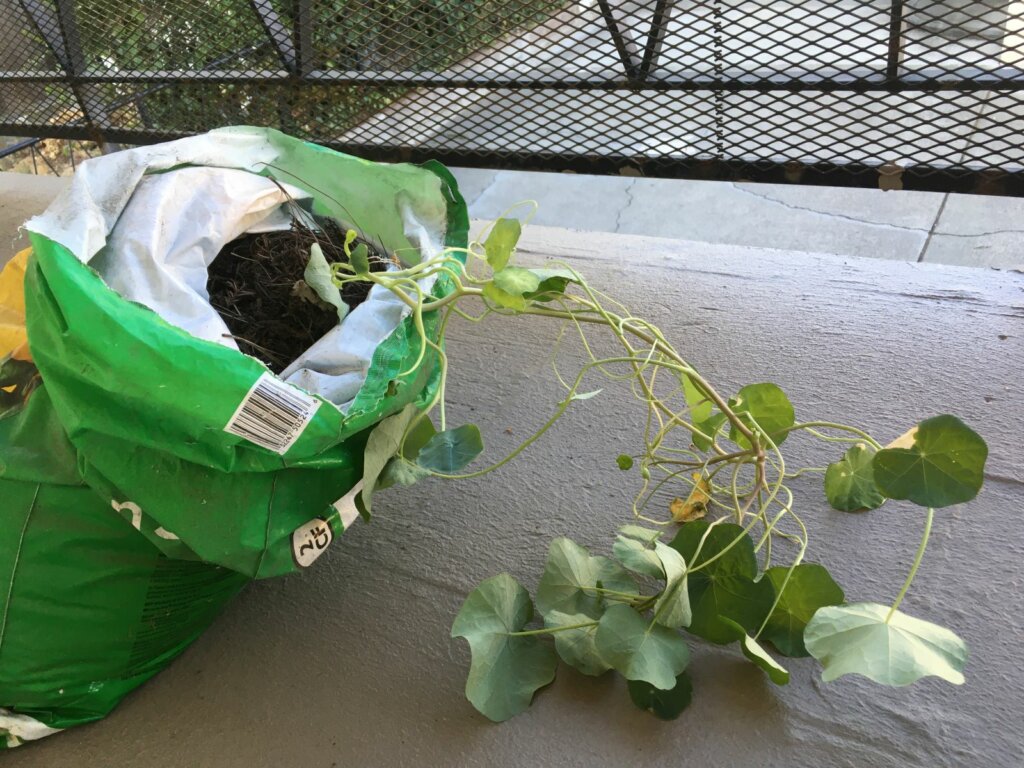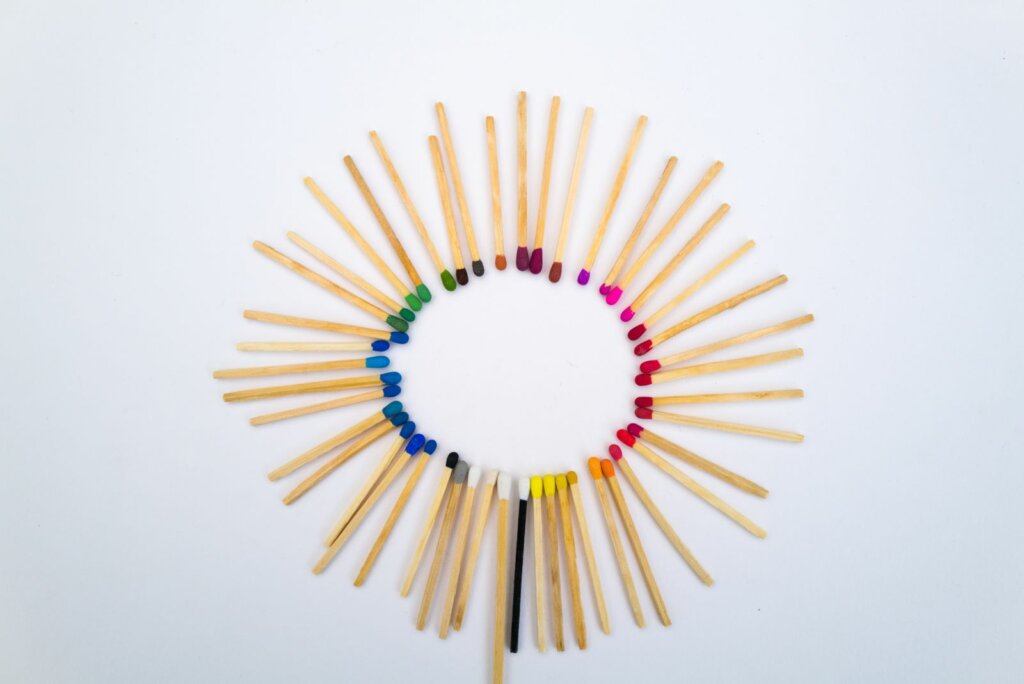What follows is a post from five years ago about dreams and delusions that is relevant as I continue to chase my own dreams. Enjoy.
I read an article in my university’s alumni magazine the other day about Andre Ingram, who at 32 became a rookie for the LA Lakers. Reading his story, I teared up because the whole thing seems so surreal, so unlikely.
Since he was 8 years old, Andre dreamed of playing for the NBA. He played in high school and then at our university. Once he graduated, he toiled for years in the NBA’s minor league. And I mean toiled – he made $13,000 for the entire season in the minor leagues, which is less than what NBA players make for a couple of games. He tutored kids in math while his wife also worked. He says he thought about quitting several times, and some friends advised the same, or to find a better payday overseas. But he persisted.
“Every time I was ready to jump off that ledge something pulled me back,” he said. “Whether it was in training, when I’m hitting every shot I take, or in the weight room getting encouraged by the guys. My story is to let that voice, let that encouragement, pull you back in.”

Sometimes a dream seems unlikely but then it happens. Photo by Edgar Chaparro on Unsplash
Andre is the oldest American rookie in the NBA since 1964. His story fascinates me because at what point does a person give up on their dream? Sometimes a dream is a delusion. We’ve all seen those auditions on TV where someone thinks they’re an amazing singer or dancer and they have zero talent. To the rest of the world, it’s obvious the person will never be a star, but they can’t believe it.
At what point is it harmful to keep believing in a dream? At what point is it better to let it go? I don’t have the answers to those questions. I’m sure many people told Andre it was unlikely he’d ever play in the NBA. A 32-year-old with gray hairs competing against people 10 years his junior? What are the odds he could share the court with them? But it happened.
What struck me the most about Andre’s story is that quote about how something kept pulling him back. Every time he wanted to quit something kept him from doing it. That to me reeks of intuition, which my spiritual teacher says “establishes the link between the crude world and the subtle world. And as a result of a closer link being established between the subtle and spiritual worlds, and as a result of its closer acquaintance with the sweetness of the spiritual world, this intuition guides human beings along the path of spirituality.”
It seems to me that if something keeps coming up over and over again, it’s intuition, guiding a person on their behalf. We don’t know how that journey will unfold, and it likely won’t look the way we want it to, but I have to believe if some dreams don’t disappear, then they are meant to become reality.
I dream of a world where we pursue our dreams if something keeps pulling us back in. A world where we recognize the fruition of that dream likely won’t follow the route we intended. A world where we understand something may seem out of reach, but that doesn’t always mean it is.
Another world is not only possible, it’s probable.
After a long day of staring at my computer screen, I walked outside to my apartment complex’s terrace where something caught my eye. Leaning against the far wall beneath an overhang is a bag of detritus. It’s filled with dirt and pine needles and everything workmen scooped out of our gutters from at least eight months ago, if not longer. Do you know what was spilling out of that bag?
A well-developed nasturtium vine. There are so many things about this that are astounding. Number one, I’m on that terrace every few days watering my plants. How did I not notice it before? And number two, it hasn’t rained here in MONTHS. How did that nasturtium vine survive?!? It’s not like any of my neighbors were watering a bag of soil in an attempt to keep a plant alive. And yet, not only did it survive, it thrived as you can see in the picture.
When I saw this plant, I literally laughed out loud because it was so unexpected and also miraculous. It reminded me that miracles are everywhere if we look for them. Miracles often have the connotation of being something big and obvious, but they can also be small and discreet, like this nasturtium vine.
I could use more miracles in my life. It’s easy for me to become disheartened by the ever-present pessimism in the news. Fires leveling towns. Floods. Famines. It’s a lot. And yet, if I look around, I also see evidence of miracles. Back in November, scientists captured footage of the black-naped pheasant-pigeon, which hadn’t been seen since 1882! In Brazil, the Golden Lion Tamarin used to be on the brink of extinction with about 200 animals in the wild, but the population has rebounded to around 4,800, according to a recent study.
Miracles happen every day with people surviving deathly car crashes, or getting pregnant when they thought they were infertile, or walking again when they were told it was impossible. It’s easy to think, “Well, that wouldn’t happen to me,” but what if it could? What if you could also receive a miracle? And like me with the nasturtium plant, what if miracles are all around and we’re just not noticing them?
Given the choice between a world where we’re all doomed and one where miracles take place, I vote for the latter. It reminds me of a concept we have in my spiritual tradition called madhuvidyá, which literally means “honey knowledge.” It requires seeing everything as an expression of an infinite loving consciousness, also known as Brahma. My spiritual teacher says, “This madhuvidyá will pervade your exterior and interior with … [ecstasy] and will permanently alleviate all your afflictions. Then the ferocious jaws of [degeneration] cannot come and devour you. The glory of one and only one benign entity will shine forth to you from one and all objects.”
That may not seem relevant but for me, practicing madhuvidyá means remembering God is here, there, and everywhere. And because everything is Brahma, everything is a manifestation of that infinite loving consciousness, then OF COURSE miracles are everywhere. How could they not be?
I dream of a world where we recognize the strange and the unlikely occurs all the time. A world where we make room for magic and mystery. A world where we understand this entire universe is composed of an infinite loving consciousness and from that place, we recognize miracles are everywhere.
Another world is not only possible, it’s probable.
For the past almost two weeks I’ve had pain in the spot where my shoulder and neck meet. My chiropractor characterized it as a drum beneath her fingertips. It’s pulsing, it’s intense, and as much as I would like to think it’s only from sleeping weird, I know that’s not the case. The mind and body are connected with the body acting as a roadmap for my life. It marks the terrain.
When I shared with my close friend what’s happening with my body, they said it sounds like I’m in the in-between place of “I’m stuck,” and “I take my power back.” In the chiropractic model I use, network spinal analysis, there are 12 stages of healing. The stages are fluid and not hierarchal, meaning I could cycle from stage 12 to stage three to stage nine all in the same day.
Stage three is “I’m stuck,” and stage four is, “I take my power back.” I struggle with making that jump. I’m really good at being stuck. I repeat patterns over and over again. I find myself in places where I can’t seem to escape from. Taking my power back? Not an easy thing for me. I’d much rather give my power away to someone else. Someone else has all the answers. Someone else knows what I should do. Someone else is the key to my healing. And sometimes that’s true but there’s a difference between saying, “I’m choosing to see this person or take this course/class because it feels in alignment” and “Aaaaaah! I’m stuck, I’m stuck, I’m stuck, let’s try this thing and that thing and that thing. Throw spaghetti at the wall!”
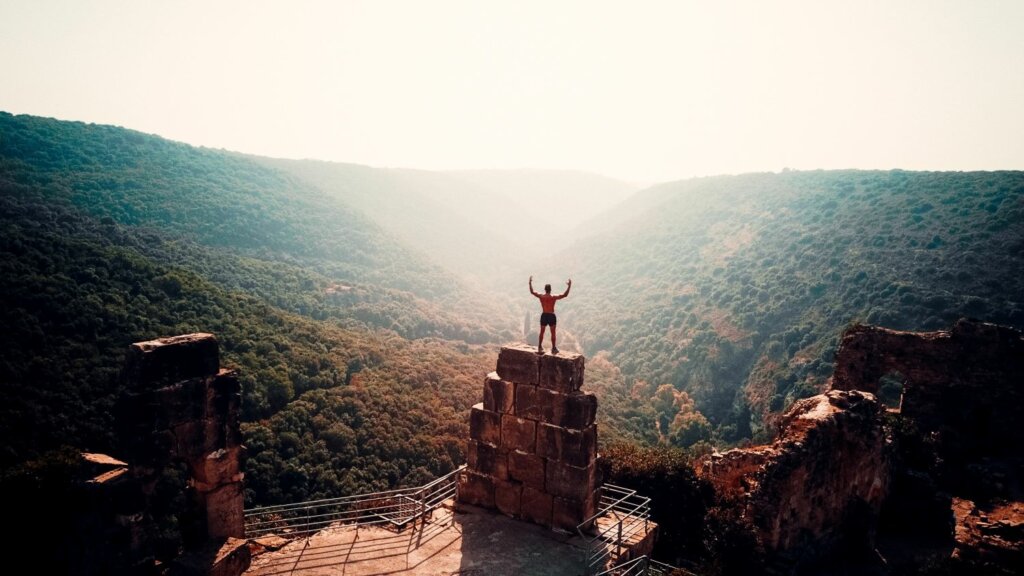
Not a spaghetti picture but a powerful one! Photo by Ameer Basheer on Unsplash
I usually throw spaghetti at the wall. I’m really good at trying random things from a disempowered place. It’s easy for me to take action. It’s not so easy for me to believe in myself. And yet, that’s what I’m here to do. The two tenets of my spiritual practice are self-realization and service to the universe. What is self-realization?
According to my spiritual teacher, “[I]t is the natural wont of each and every living being to see others, not to see [themselves]. That is, whenever one becomes a subjective entity, [they take] others as an objective counterpart, but never the self as an objective counterpart. One’s subjectivity never merges with objectivity and that is the trouble. You want to know so many things but you never want to know yourself. Your ‘self’ is your nearest entity but you never want to know yourself. That is the pity, that is the trouble.”
By knowing the self, I don’t mean just what my favorite color is, or even what my hot-button issues are. Knowing the self means knowing my true self, the self that’s always here, witnessing everything. The calm, quiet, inner voice within that’s ready and willing to help me if I let it. My recovery mentor tells me frequently, “Higher Power is very polite and only goes where invited.” When I invite my Higher Power into my life, that is a form of taking my power back. It’s me saying, “I can trust my self. I can trust my self to lead me where I need to go, to show me what actions to take.”
Knowing the self doesn’t mean becoming egotistical, that you shut out other people and say, “I already know everything.” Instead, knowing the self and taking your power back means being an active participant in your life and recognizing that not only is life happening to you, but you are happening to life. Both are true. There are circumstances outside of our control but some things are not. How are we showing up for life? I, for one, want to take my power back.
I dream of a world where we recognize the wisdom in knowing the self. A world where we understand that doesn’t mean arrogance but rather a recognition that a force within us guides us, shows us, and inspires us when we’re willing to listen. A world where instead of being blown about like a leaf, we take our power back.
Another world is not only possible, it’s probable.
I had a very extreme week. I’m working on an article about a public housing project in San Francisco beset with problems. It has rats, squatters, mold, and more. And at the same time, I’m also working on an article about a dream home in Carmel that has two outdoor kitchens, a custom six-hole putting green, and nine fireplaces.
It would be easy to say the wealthy homeowners have a better life than the people living in public housing but life is never simple like that. When I visited the housing project, I witnessed a community coming together to support one another and look out for each other. It was filled with kindness and care. Things weren’t all bad or all good.
I didn’t visit the luxury home in Carmel, nor meet the homeowners, but as we know, money doesn’t inoculate you from problems. For instance, actor Michael J. Fox was diagnosed with Parkinson’s in his 20s. As a result of the disease, he’s broken his shoulder, elbow, hand, and even his face. He told Variety, “I have aides around me quite a bit of the time in case I fall, and that lack of privacy is hard to deal with. I lost family members, I lost my dog, I lost freedom, I lost health. I hesitate to use the term ‘depression,’ because I’m not qualified to diagnose myself, but all the signs were there.”
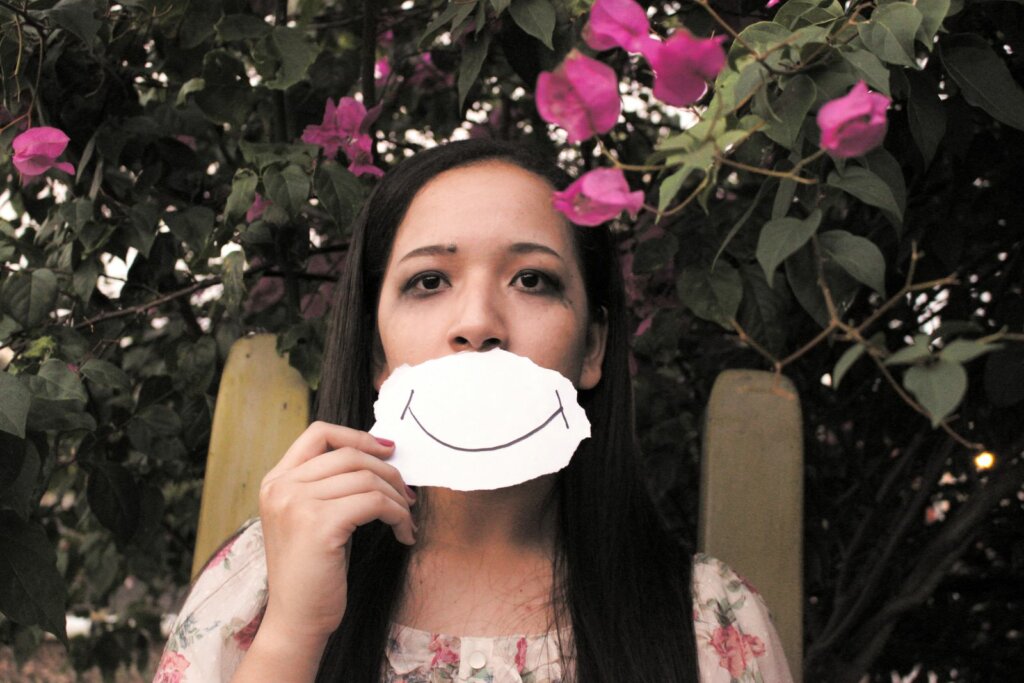
Sweetness and sorrow can be present at the same time. Photo by Ángel López on Unsplash
Money for sure makes some things easier but nobody gets an easy, breezy life. We all experience sweetness and we all experience sorrow. I think we all want more happiness but it’s interesting to me what we do to try to achieve it. Research shows us our brains are wrong about what we think will cause happiness. We think it’s money, career success, and material objects. But it’s not. Yet, despite the lie, why do we keep heading down that track? I’m not a neuroscientist but I can tell you from a spiritual perspective that there are two forces at work in the world, vidyá and avidyá.
They could be translated into good and evil but that’s not quite right. Really, they’re about the movement toward subtlety or crudeness. Avidyá seeks to drag the mind toward crude objects and bind us to the things of this world like cars, homes, and luxury goods. It has us believing that greed, selfishness, and narrowmindedness are the best way to operate in the world. Avidyá has us forgetting that nothing comes into this world forever.
Vidyá, on the other hand, is the opposite of all that. Through intuitional practices such as prayer and meditation, we come to understand that life is better when we are generous, when we care about others, and when we try to expand our minds beyond narrow sentiments. It’s the reminder that finite objects do not bestow us with the permanent happiness we seek and instead, that’s an inside job. Vidyá reminds us that only the Divine Beloved is eternal.
Going back to sorrow and sweetness, when I turn toward a Higher Power, I understand there can be sweetness amidst sorrow and sorrow amidst sweetness. I remember that neither is in my control, not really, and they’re passing fancies. What I want, what I really, really want, only God can give me.
I dream of a world where we remember there will always be sorrow and there will always be sweetness. A world where we understand neither state is permanent. A world where we recognize we always have a choice of moving toward subtlety or toward crudity. A world where we understand it’s only in subtlety that we’ll experience the bliss that we seek.
Another world is not only possible, it’s probable.
I heard a line from Leonard Cohen’s poem Good Advice for Someone Like Me the other day: “If you don’t become the ocean, you’ll be seasick every day.” Wow. I’m pretty sure I can end this post right there and let you meditate on his idea.
I can confidently say most of the time I’m metaphorically seasick. I’m worried about an upcoming potluck, getting more clients, or if I’ll ever figure out what’s happening with my health. I wouldn’t classify myself as anxious anymore but I also wouldn’t say I’m serene. I have moments of going with the flow but most of the time I’m cussing out God and proclaiming how much I hate It because things aren’t going my way.
Cohen’s line reminds me of surrender, which means to stop fighting. It’s when I’m fighting life on life’s terms that I get into a tizzy and metaphorically seasick. It’s when I’m not accepting what is that I feel anxious. There are some things I don’t think anyone should accept – injustice, inequality, and any of the -isms such as racism and sexism – but the smaller things, the reality of my life, I’d be better off leaning into.
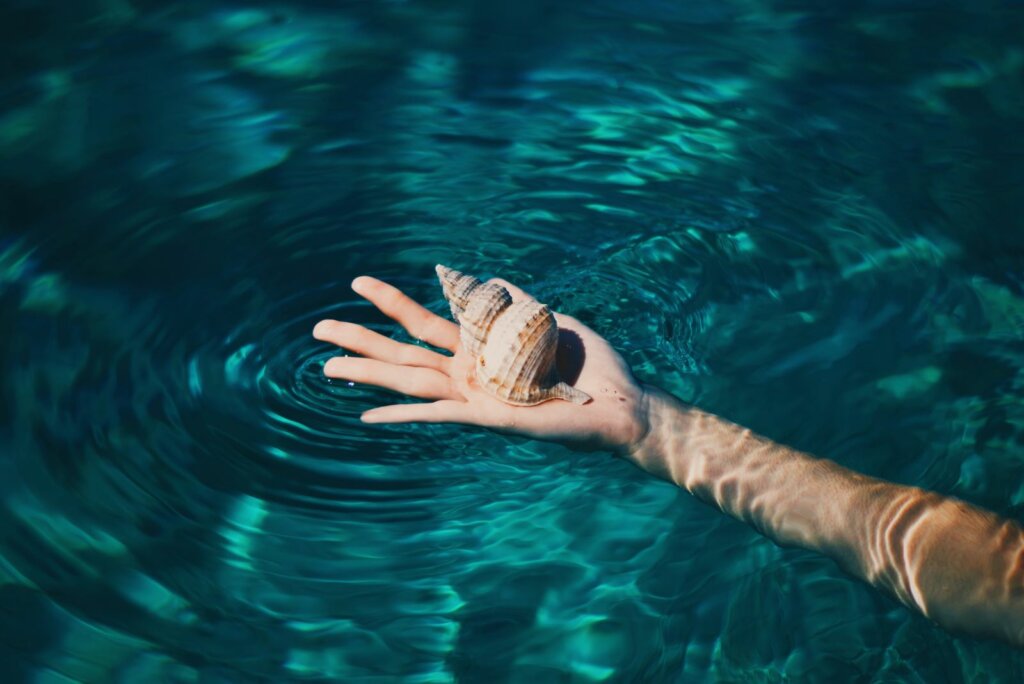
The peace! The tranquility! Photo by Biel Morro on Unsplash
I often joke that someone should make me the general manager of the universe because I have some GREAT ideas but alas, that’s not my role in this lifetime. In this lifetime I’m learning trust and surrender. I’m learning that the universe loves me and wants me to be happy, joyous, and free. I’m learning to let go of my attachment to how things should go and accept how things are going. Does that bring grief from time to time? Yes, it does. Am I feeling my feelings about it? Yes, I am.
What I’m learning here, in essence, is how to dissolve my ego, my little self, and merge it with the big Self. My spiritual teacher says, “If a salt doll goes to measure the sea, it will melt into it. Neither can it measure the sea, nor will it ever return; its existence will merge into the vastness of the sea, releasing it from all cares and worries. If one wishes to take the form of the sea, one will have to become the sea itself; there is no other way.”
I am becoming the sea, I am becoming the ocean. I’m recognizing not only does a higher power exist outside of me in the form of energy pervading the universe, but it also exists inside of me as me. From that framework, it’s easier for me to trust and surrender because um, hi, of course my deeper self wants things to work out for me. Of course my greater self sees a broader perspective and understands why it’s better for me to turn left when I thought I should have turned right.
When the Divine Beloved exists within me, as me, it’s easier for me to surrender and let myself become the ocean instead of bobbing along the surface and getting seasick.
I dream of a world where we let ourselves become the ocean. A world where we dissolve our little egos and surrender to something vaster than we can comprehend. A world where we accept life on life’s terms when appropriate and stop making ourselves seasick.
Another world is not only possible, it’s probable.
I’ve loosely been following the Writers Guild of America strike, which has now been joined by the Screen Actors Guild-American Federation of Television and Radio Artists. I feel like I’m watching a dystopian movie but here’s the kicker, it’s all really happening.
The CEO of Disney, Bob Iger, said during an interview at the Sun Valley annual conference, which has been touted as a “summer camp for billionaires,” that he thinks those on strike are “unrealistic.”
“There’s a level of expectation that they have, that is just not realistic,” he told CNBC. “And they are adding to the set of the challenges that this business is already facing that is, quite frankly, very disruptive.” He added that while he respects the right of the unions to “get as much as they possibly can in compensation for their people,” they must “be realistic about the business environment, and what this business can deliver.”

Maybe Bob Iger should be realistic. Photo by Blogging Guide on Unsplash
How about some context? Iger recently took over again at Disney and he has the potential to earn up to $27 million in 2023, his first full year as returned CEO. Let’s break that down a bit further. He is paid $74,175 per day whereas Hollywood writers earn on average $69,510 a year. Abigail Disney, a documentary producer who is also the daughter of Roy E. Disney said in a tweet, “You can only call your workers and partners ‘unrealistic’ if you cannot see beyond the confines of the very narrow and morally bankrupt business ideology that has set your company on this long track toward exploitation and injustice.”
Amen! Actor Sean Gunn had this to say about Iger’s comments: “I think when Bob Iger talks about, ‘What a shame it is,’ he needs to remember that in the 1980s, CEOs like him made 30 times more than what the lowest worker was making. Now Bob Iger makes 400 times what his lowest worker is and I think that’s a f***ing shame, Bob. Maybe you should take a look at yourself in the mirror and ask yourself, ‘Why is that?’ and not only why is that, is it okay? Is it morally okay? Is it ethically okay that you make much more than your lowest worker?”
Apparently, we as a society think it is. Iger isn’t the only CEO to make hundreds of times more than the lowest-paid worker. An article in the Guardian from a year ago found that in the top 300 U.S. companies, the wage gap is 670 to 1. CEOs are making an average of $10.6 million while the median worker is getting $23,968.
I can’t really conceptualize a million because it just sounds like a really big number. To break it down into something more understandable, 1 million seconds is approximately 11 days. How much do you think 1 billion seconds is? It’s more than 31 years. Years. Billionaires can’t possibly spend all the money they have – and you can try using the calculator https://neal.fun/spend/. Billionaires can purchase multiple mansions, make multiple movies, buy multiple yachts, purchase the Mona Lisa, and still have a lot of money left over. A LOT.

We don’t have to be so inequal. Photo by Jonathan Borba on Unsplash
No one person should have that much wealth and that’s why we need a maximum wage. We have a minimum wage, why don’t we have a maximum on how much one person can earn? I know, I know, everyone in the U.S. thinks they are temporarily embarrassed millionaires so fine, put the cap at a million dollars and make sure the lowest-paid worker is earning more too. In cooperative business models, the wage gap is much smaller. The highest-paid executive at Mondragon Corporation makes six times that of its lowest-paid employee.
Lest you think this is some kind of mom-and-pop operation, Mondragon employs around 80,000 people and its businesses include schools, a large grocery chain, a catering company, 14 technology R&D centers, and a McKinsey-like consulting firm. In 2021, the network brought in more than 11 billion euros in revenue.
You can succeed in business while also being more equitable and Mondragon is an example of that. To bring it back to the writers’ and actors’ strike, what I fear will happen is the studio execs will raise prices for consumers in order to keep lining their greedy pockets. But what I would like to happen is for our country’s artists to say, “No, Bob, you don’t get to make 400 times more than I do,” and then force a maximum wage on him. Stranger things can happen. This is Hollywood we’re talking about after all.
I dream of a world where there’s a cap on wealth. A world where one person isn’t allowed to accumulate billions while others must work multiple jobs just to survive. A world where the highest-paid worker makes no more than 10 times the lowest-paid one. A world where we remember there’s enough for everyone’s need but not enough for everyone’s greed.
Another world is not only possible, it’s probable.
Summer is a season that elicits nostalgia like none other for me. I long to recapture the lazy, sun-soaked days of my childhood when time stretched like Silly Putty. I want the carefree aesthetic portrayed in media – beach days, fireflies, and ice cream. In my mind, everything was great way back when. Except…it wasn’t.
It’s a quirk of the brain that we misremember the past and downplay negative events. We drop the bad stuff – sunburns, rain, fights with loved ones – and only remember the highlights. When we do remember the bad stuff, we reconstruct it to make whatever happened more enjoyable and entertaining. The time you broke your toe while hiking becomes more exaggerated, more colorful. It’s a yarn you trot out at parties to elicit laughter and pity. But there’s still some wistfulness about the past.
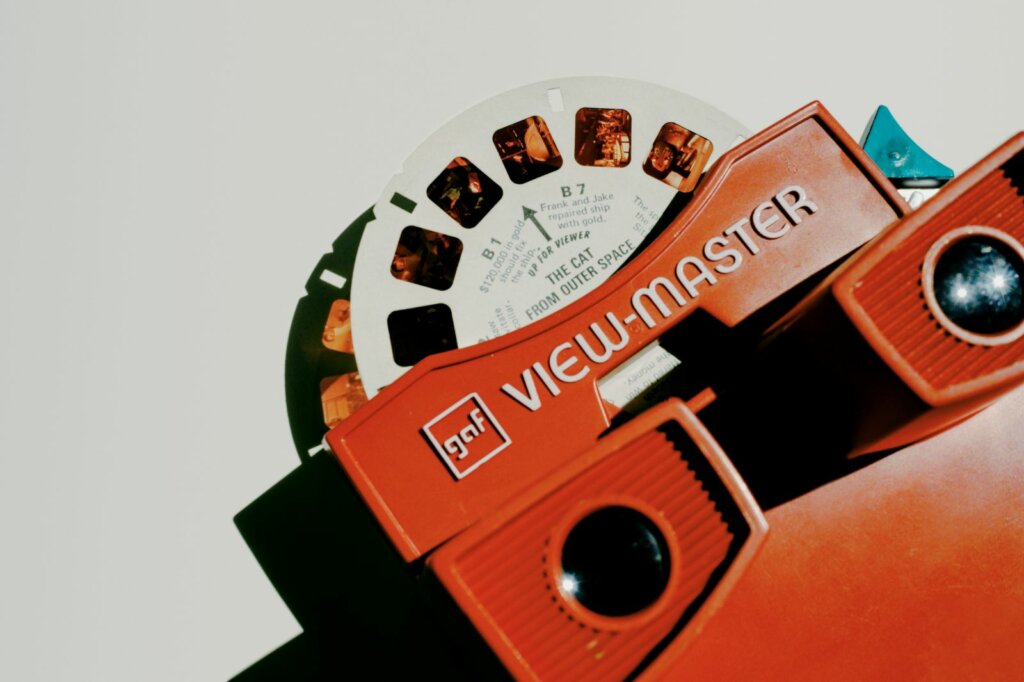
Nostalgia creates a warped view of things. Much like a view-master! Photo by Girl with red hat on Unsplash
Researchers call this “rosy retrospection” and we do this not only in our personal lives but also when we fantasize about how society was better “back then.” In a recent poll, six out of every 10 Americans said that “life for people like them is worse today than it was 50 years ago.” But as University of Calgary instructor Paul Fairie demonstrates in his Twitter thread, “A Brief History of Things Were Better 50 Years Ago,” we’ve been saying this since 1890!
To be clear, all humans do this and have always done this because it’s how our brains work. It’s not a relatively recent development dating back to 1890. We all fall into the nostalgia trap but the important thing to remember is it’s not true. There is no idyllic utopia in the past. Things were not better back then. Some of the bigger societal things like climate change and wealth inequality, yes, they were better years ago, but our day-to-day lives were not.
I put this to the test by rereading some of my journals and the time periods I thought were great were anything but. I was insecure or heartbroken or uncomfortable or not sleeping through the night. I was stuck or broke or irritated. In short, I was experiencing the entire range of human emotions because that’s what it means to be alive. There is always something stressful or bothersome happening just as there is always something fun or joyful happening.
A time when everything is perfect doesn’t exist except in snippets. We have perfect moments, hours. If we’re lucky, perfection stretches to days but never months or years. It’s just not possible because the nature of life is to change and move. It’s why my spiritual teacher says, “Here in the universe, nothing is stationary, nothing is fixed. Everything moves; that’s why this universe is called jagat. Movement is its dharma; movement is its innate characteristic.”
The best we can do then is feel gratitude for the perfect moments life grants us and keep our eyes trained ahead, not behind. One more quote from my spiritual teacher: “You are to look ahead, you are to look forward. If you look back, if you look behind, you are wasting your valuable time.” And time, as we all know, is precious.
I dream of a world where we remember that rosy retrospection is real and it’s likely we’re misremembering the past. A world where we understand things weren’t better in our personal lives five years ago or 50 years ago or 500 years ago. A world where we remember to keep our eyes trained ahead in order to avoid falling into the nostalgia trap.
Another world is not only possible, it’s probable.
I, like many, have a lot of feelings about the smattering of recent U.S. Supreme Court decisions. And then there are the bills targeting the LGBTQIA+ community. The trend I’m noticing is more divisiveness, more separation, and more hate, frankly. Is this what human beings are destined for? Are we doomed to splinter off into smaller and smaller groups and engage in constant “us versus them” culture wars?
Maybe yes, maybe no but according to neuroscience, our brains are wired for connection and cooperation. Neuroscientist Matthew D. Lieberman, director of UCLA’s Social Cognitive Neuroscience Lab wrote a book called Social: Why Our Brains are Wired to Connect. He says, “To the extent that we can characterize evolution as designing our modern brains, this is what our brains were wired for: reaching out to and interacting with others. These are design features, not flaws. These social adaptations are central to making us the most successful species on earth.”
There’s also a study out of Emory University led by Gregory Berns who learned that when pairs of volunteers cooperated with one another, the reward circuits of the brain were activated. These are the same regions that are activated by drugs. The activation happened only when paired with a human – when the study participants were paired with a computer, they didn’t have the same response.
Volunteers were hooked up to an fMRI scanner and invited to play the “Prisoner’s Dilemma” game. Each volunteer pressed a button to indicate when they were ready to play, and then each simultaneously pushed another button to indicate if they wished to cooperate with, or betray, the other player.
The most common outcome was volunteers mutually cooperated with one another. Berns suggests people are hard-wired to cooperate because the brain associates cooperation with reward. Others are quick to point out that correlation is not causation but I’m inclined to agree with Berns because regardless of whether it’s due to our brains or something else, we want to connect with other people. We are wired for oneness.
What so often gets in the way is exactly what we’re seeing now: socio-sentiment. Socio-sentiment means loyalty to a particular social group to the exclusion of other groups. You already know what a world dominated by socio-sentiment looks like – we’re living in it. What’s the solution?
My spiritual teacher says, “To liberate society from this unbearable situation, consciousness will have to be aroused among the people; their eyes will have to be opened by knowledge. Let them understand the what’s, the why’s, and the where’s. Thus, study is essential, very essential.”
In other words, biologically, we want to connect with others, we’re made for connection, and what’s getting in the way is cultural conditioning that says this group is good and this group is bad. We all do this. The challenge then is to see every person as a human being, not a label. Personally, I do this by practicing empathy and guessing what someone else is feeling and needing. And when I do, I feel even more connected. It’s almost as if my brain is wired for oneness and spurring me on.
I dream of a world where we promote unity instead of division. A world where we recognize we are all humans with the same feelings and needs. A world where we stop propagating socio-sentiment and instead recognize we’re all in the same group. A world where we remember we are wired for oneness.
Another world is not only possible, it’s probable.
The mind is a powerful thing. I’m pretty sure every spiritual tradition touches on this using different phrases such as, “magnifying mind,” “as you think, so you become,” “what you focus on grows,” etc. The question for me then is what am I focused on? Am I keeping my mind trained on greed, envy, cruelty, anxiety, fear, or selfishness? Or am I turning toward higher ideals such as love, generosity, and communion?
What’s interesting about the mind is that it’s the “cause of all our sorrows and predicaments, and it is the cause of our supreme bliss,” according to my spiritual teacher. “It is the cause of bondage, and it is the cause of liberation,” he adds. The mind is capable of both bondage and liberation and it’s up to us to direct our minds toward freedom. He has a beautiful metaphor for this and says the mind is a tat́asthá shakti.
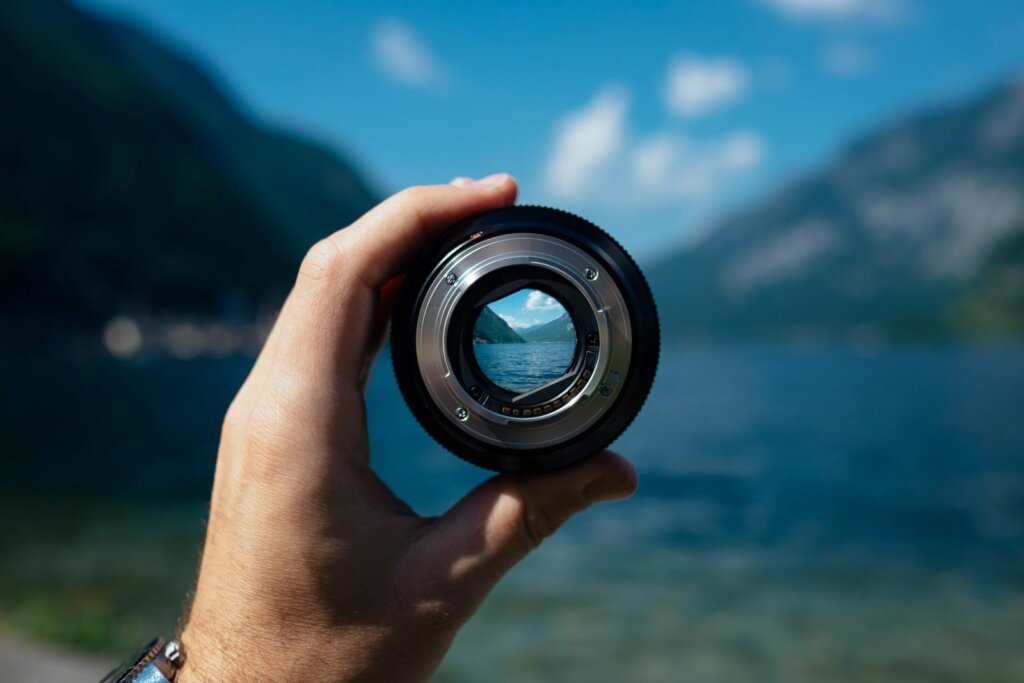
What are you focused on? Photo by Paul Skorupskas on Unsplash
Tat́a is the line where water touches land. If you move toward the water, the next moment you’ll be underwater. But if you move upward, you’ll reach dry land. The mind is like that — if it moves upward, it will be transmuted into spirit. If it moves downward, it will be transmuted into matter.
I think it’s pretty clear what we as a society focus on, where our minds are at. Take what happened recently in our oceans. When several extremely wealthy people went missing to view the remains of the Titanic, we exhausted numerous hours and resources searching for them. There was near-constant media coverage and updates. However, when a boat sank near Greece with 700 refugees onboard, we didn’t expend nearly the same number of resources or grant the same amount of media coverage.
Keep in mind, the International Organization for Migration called it one of the worst sea tragedies in the last decade. So, you know, a big deal and certainly worth covering extensively. Many people, including Barack Obama, pointed out the discrepancy so it’s not as if no one cared about the refugees but repeatedly, we’ve shown there’s a difference between lip service and action.
Many Republicans, and some Democrats, repeatedly offer “thoughts and prayers” after mass shootings but don’t actually enact change because it benefits them financially not to. They care more about lining their wallets than saving lives. I could keep going with examples but I won’t because I made my point: our society’s collective mind is moving toward the water, so to speak. It’s focused on material goods and worships at the altar of materialism. However, I know it’s not beneficial for me to focus on negativity and tout doom and gloom so I won’t. Instead, I’ll say there are pockets all over the world where people are focused on “land,” they are training their minds toward spirituality, and pretty soon, we’ll reach a tipping point.
I’ll quote my spiritual teacher again who says, “[H]uman beings should always be optimistic. The cimmerian darkness cannot retard your progress, cannot cover the light of the human heart. The spirit of your heart must move on and on against obstacles. Kick away your obstacles like pebbles from your feet – you are stronger than your obstacles.”
I dream of a world where we remember our minds are powerful and we focus them accordingly. A world where we understand the mind can either move toward bondage or liberation and the choice is ours. A world where we each focus on higher ideals and bring a better world into being.
Another world is not only possible, it’s probable.
We humans like simplicity. We want an easy-to-tell story and we want it to be logical. But the thing is, real life is rarely like that. Real life is complicated and hard to turn into a soundbite, no matter how much we try. For instance, the common explanation for Juneteenth is it’s a day to celebrate when slaves learned they were free. However, that’s whitewashing the truth.
Robin Washington reminds us in Forward.com the tale we’ve been told isn’t accurate. The story goes like this: Union soldiers arrived in Galveston, Texas, on June 19, 1865, to inform enslaved African Americans they were free. As if they didn’t already know. However, historian Gregory P. Downs has firsthand accounts from people demonstrating they did know. Galveston’s Blacks knew they were free and so did their slaveholders, who nonetheless kept them in bondage using brute force.
That means General Gordon Granger didn’t read off from a scroll and let slaves know they were liberated. No, Granger and his soldiers let the slaveholders know the slaves were liberated – at the barrel of a gun. They used force to say, “Let these people go.” Not only that, June 19, 1865, isn’t when all slaves were officially freed. In October of that year, white Texans in some regions still claimed and controlled slaves as property, according to Downs.
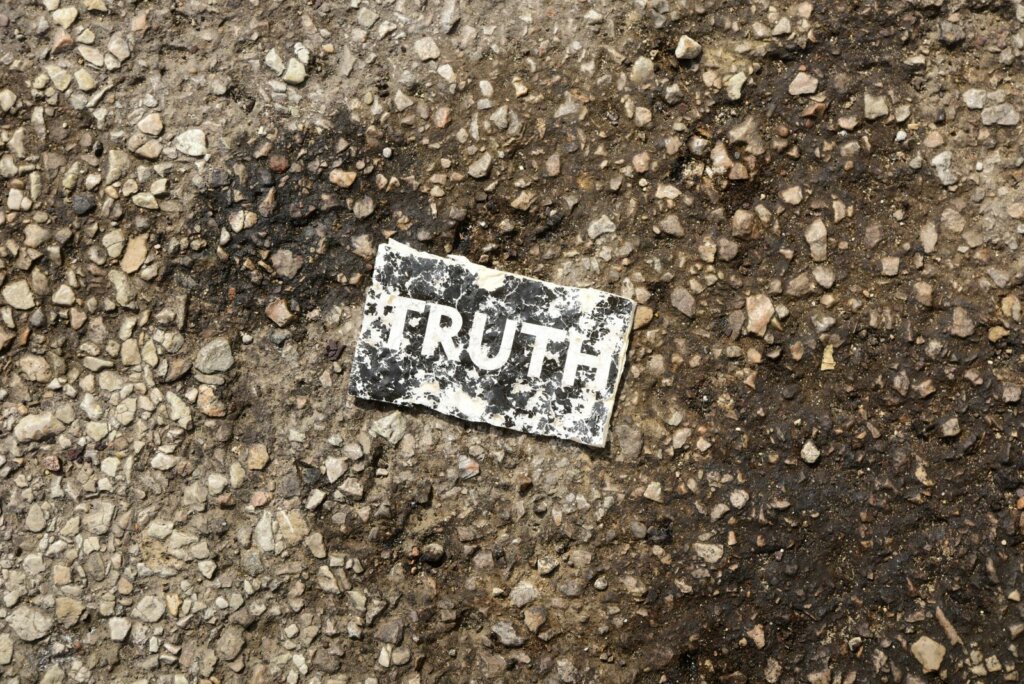
The truth matters even when it’s bruised and battered. Photo by Michael Carruth on Unsplash
Why does the true account of Juneteenth matter? Because the sanitized version doesn’t acknowledge how people actually behaved and continue to behave. The truth matters because without it we can’t do anything to change it. In 12-step communities, we say the first part of overcoming an addiction requires awareness of the addiction. Truth is awareness and truth ultimately leads to liberation.
As much as people like to say we live in a “post-truth” world, I don’t think we do. I think we live in a world where we want to have masks and create neat and tidy narratives but the truth always comes out. In Sanskrit, the unchangeable entity is Sat. The external manifestation of Sat is satya, or benevolent truthfulness. My spiritual teacher said, “Only satya or truth triumphs and not falsehood. Whenever there is a clash between truth and untruth, truth’s victory is inevitable. … Untruth, being a moving phenomenon, may attain a temporary victory on its march, but never a permanent one. … Falsehood does not win because it is relative, it is ever-changing.”
Sticking to the truth means a victory in the long run. It means liberation in every sense of the word for everyone, no matter the color of their skin, immigration status, gender, sexual orientation, or anything else. The truth is more stable than a lie. And the truth is worth sticking to, even if it’s messy and uncomfortable.
I dream of a world where we value truthfulness. A world where we remember as much as many would like to say the truth doesn’t matter, it does. A world where we understand that truth always triumphs in the end. A world where we stick to the truth because the truth means freedom, for ourselves and others.
Another world is not only possible, it’s probable.
